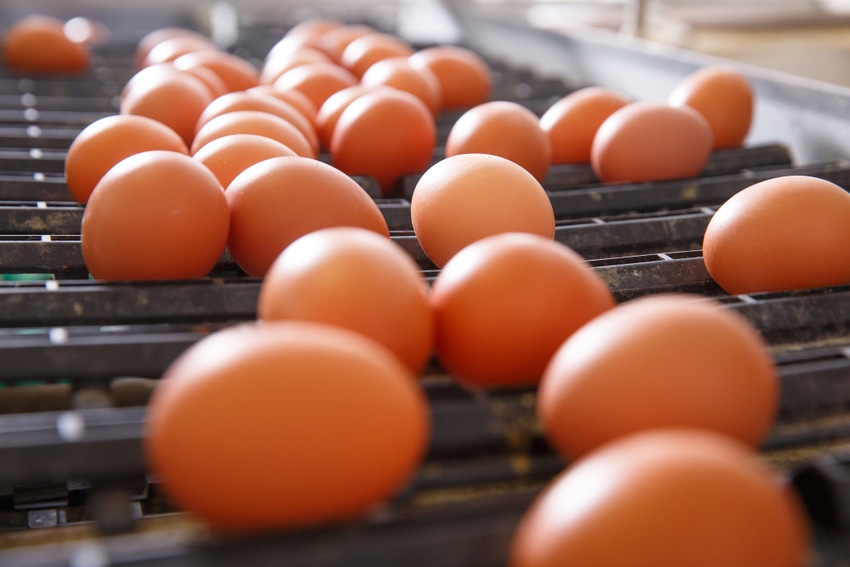Cal-Maine Q1 lower on depressed egg prices
Company to remain focused on specialty egg business growth as sales fall nearly 30% year over year.

Net sales for Cal-Maine Foods Inc. in the first quarter of fiscal 2020 fell to $241.2 million, a decrease of nearly 30% year over year from $340.6 million in the first quarter of fiscal 2018, the company reported in its newly released 2020 first-quarter results.
The company reported net loss of $45.8 million, or 94 cents per basic and diluted share, for the first quarter of fiscal 2020, compared to net income of $12.4 million, or 26 cents per basic and diluted share, for the first quarter of fiscal 2019. Results for the 2020 first quarter included a non-cash impairment charge of $2.9 million related to decommissioning some older, less efficient production facilities as Cal-Maine continues to invest in new facilities to meet increasing demand for specialty eggs and reduce its production costs.
“Our financial and operating results for the first quarter reflect the very challenging market conditions that prevailed throughout the summer,” Cal-Maine chairman and chief executive officer Dolph Baker said. “While our sales volumes were up 1.7% over the first quarter last year, the extreme drop in market prices adversely affected our results.”
Baker noted that the Southeast large market average price for conventional eggs dropped 40.7% for the first quarter of fiscal 2020 compared to the first quarter of fiscal 2019. At the same time, the average sales price was down 30.0% for the first quarter compared to the same period last year.
“The significant drop in market prices reflects the oversupply of eggs that began to affect the market starting in early calendar 2018,” Baker said, adding that the trend has continued as the U.S. Department of Agriculture’s most recent “Chickens & Eggs” report showed 331.4 million laying hens as of Sept. 1, 2019 -- approximately 800,000 more hens than a year ago.
According to Baker, the specialty egg business will continue to be a primary focus of the company’s growth strategy in fiscal 2020.
For the first quarter, specialty eggs, excluding co-pack sales, accounted for 22.2% of sales volumes, compared with 23.8% a year ago.
Baker explained that specialty egg volumes were affected by the significant price differential between conventional and specialty eggs. However, specialty egg revenue was 44.9% of total shell egg revenue, compared with 34.2% for the first quarter of fiscal 2019, reflecting less volatility in the average selling price for specialty eggs. Specialty egg prices were down only 1.4% versus the first quarter of fiscal 2019.
“We remain committed to offering a favorable product mix that meets the changing demands of our customers. As a result of California Proposition 12 and other industry changes, we are preparing for the expected higher demand for cage-free eggs,” he said.
Baker said Cal-Maine has made considerable progress with expansion plans to increase cage-free capacity.
“As previously announced, we have capital projects underway in Florida, Texas and Utah, which, at completion, will provide significant additional processing, pullet and cage-free capacity,” he said.
Baker continued, “In spite of challenging conditions, we have remained focused on efficient and responsible management across our operations. For the first quarter, our farm production costs per dozen were up 2.3% over the first quarter last year. A majority of the increase was due to flock rotation adjustments -- as we sold flocks early in response to market conditions -- and higher labor costs.”
Further, Baker said feed costs per dozen have remained relatively flat since the first quarter of fiscal 2019.
“Based on the USDA’s current yield and harvest estimates for the calendar 2019 corn and soybean crops, we expect to have an adequate supply of both grains in fiscal 2020. However, ongoing uncertainties and geopolitical issues surrounding trade agreements and international tariffs could create more price volatility in the coming year,” he said.
Moving forward, Baker said the company will focus on the aspects of the business it can control, regardless of market prices and challenging conditions.
“We are well positioned to execute our growth strategy and make the right investments to support our operations and continue to serve our valued customers,” Baker added.
About the Author(s)
You May Also Like




.png?width=300&auto=webp&quality=80&disable=upscale)
